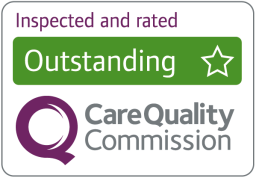Sex and contraception after pregnancy
Choosing when to start having sex and using contraception after pregnancy and birth is a personal choice. How you feel about it can depend on when you gave birth, what the experience was like and how you’re recovering.
If you’ve been pregnant but haven’t given birth, we have information about returning to sex after miscarriage and abortion.
Giving birth is physically and emotionally tiring. Your hormones change dramatically in the first few days after giving birth. If you’re looking after a newborn baby, you may be exhausted and not getting much sleep. It’s important to look after your health.
Talking to your partner
If you’re in a relationship, remember everyone can find it difficult to adjust to big life changes like pregnancy and parenthood. Your partner may be unsure of what to do and worried about hurting you. Communication is important to make sure you only have sex when you both feel comfortable and ready. Keep talking and sharing how you’re feeling as much as you can.
Speak with your health visitor or GP if you or your partner have any worries about sex after childbirth.
Sex after giving birth
Immediately after the birth, sex may be painful:
your vagina will feel swollen and painful, and you’ll have quite a lot of bleeding for a few days
if you’ve had an episiotomy, stitches or bruising, this can take several weeks to heal
if you’ve had a caesarean section you’ll need to wait at least 6 weeks – you’ll be given advice on recovery before you’re discharged from hospital, and you should have a health visitor check your incision wound a few days after the birth
Take your time, take it gently and find a position that’s comfortable. You might want to explore with your own fingers first to reassure yourself that it won’t hurt. The first couple of times you have sex, you might want to use lubrication. Hormone changes can make your vagina feel drier than usual.
If you still experience pain 2 months or so after the birth, talk to your GP or local sexual and reproductive health service. You can also ask your health visitor to check your vagina, especially if you feel you’re not healing correctly. It’s hard to know what you should feel like, so if in doubt, always ask.
Contraception
You can get pregnant again very soon after having a baby, whether or not you're breastfeeding or chestfeeding.
Even if your periods have not started again, you can still get pregnant, because you can release an egg around 2 weeks before your period.
It’s a very good idea to plan ahead and think about what contraception you’ll use after pregnancy. There are good options that are safe to use straight away, and you can talk to your midwife or GP about these any time – including while you’re still pregnant.
Pelvic floor exercises
Pelvic floor exercises, sometimes called Kegel exercises, help to tone and strengthen the vaginal and pelvic floor muscles.
If you do these during your pregnancy and carry on after the baby is born, it will help to prevent incontinence (pee leaking out). It can also help your vagina feel firmer and make sex feel better.
You can do pelvic floor exercises anywhere and at any time, either sitting or standing up:
squeeze and draw in the muscles of the vagina – imagine you’re closing your vagina and drawing it upwards
you may naturally feel your anus tighten and close at the same time
it may help to imagine you’re stopping a bowel movement, holding in a tampon or stopping yourself peeing
Do it quickly, tightening and then releasing the muscles right away. Then do it slowly, holding the contractions for as long as you can. No need to hold your breath though, keep breathing while you hold it for no more than 10 seconds before you relax.
Repeat each exercise 10 times, 4–6 times a day.
There’s an app from the NHS that's designed to help with these exercises. It's called Squeezy. It will help you with a programme of exercises and send you reminders.
Do you need help with something else?
Find sexual health services near you
Get sexual health advice from the experts



